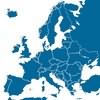It’s an ongoing mystery that “liberal” is still a swear word in vast parts of the United States and may even be synonymous with “Europe” — as in, “all those liberals in Europe” — while Europeans would hardly recognize themselves in the label.
“Obama portrays himself as a moderate, but he’s really much more liberal than he says,” a Fox News talking head declared during the 2008 U.S. presidential election, hoping to ding the candidate’s reputation. Two years on, most Europeans would only agree: Barack Obama has turned out to be a far more typical American president — far more liberal — than he appeared on the campaign trail.
Which way Obama has really tacked since then is not the point. “Liberal,” in Europe, means almost the reverse of what it means in North America. In Europe, it refers to laissez-faire economic policy. And because most large parties of the European left and right are committed to maintaining large, bureaucratic welfare states, liberal parties across the continent tend to be fairly small.
Liberal Democrats in Britain, the Liberal Alternative in France, Progressive Democrats in Ireland, Free Democrats (or Die Liberalen) in Germany — these smallish, also-ran parties pipe up reliably in parliament for freer markets, civil liberties and (sometimes) lower taxes. Now and then, they even form ruling coalitions with a big party on the left or right. In American English, they’d be called “neoliberal” or “libertarian.” But they’re also the parties closest in spirit to liberal democracy as it’s practiced in the United States.
The U.S. itself is an experiment in liberal politics, heir to the liberal movement in France that brought down the monarchy. Every conservative in the U.S. now is properly thought of as a “liberal” in that classic old sense, unless there are royalists or Tories lingering on the U.S. voting rolls. For that reason alone, all the liberal-bashing on Fox News sounds anti-American.
But the trans-Atlantic failure to agree on the meaning of “liberal” also demonstrates how few serious liberals exist in the world.
Social liberals in America have been tarred by economic liberals (“conservatives”) for being so illiberal about free markets, while true social conservatives resent them for being morally liberal on the one hand, or over-liberal with a tax dollar on the other. Economic liberals in Europe, meanwhile, rarely charge ahead on social justice, because by calling themselves “liberal” they don’t necessarily mean minorities should have equal rights.

Michael Scott Moore complements his standing feature in Miller-McCune magazine with frequent posts on the policy challenges and solutions popping up on the other side of the pond.
It’s the economic wing of liberalism that the last few years of financial trouble have bruised so badly. Free markets have gone out of style. (Never mind whether an opaque gambling market for complex derivatives with no real use to the public should be called “free,” if most participants can hardly grasp what they’re doing.) Europeans relate market liberalism to the “Anglo-Saxon” economic model. But that’s another term that slithers around what it means.
The French started using “Anglo-Saxon” over a century ago to indicate those English-speaking and mainly Protestant parts of the world where industrialism and capitalism were strong. But now “Anglo-Saxon economy” refers to a free-market system with lower taxes and fewer state benefits — like America’s — as opposed to larger welfare economies like those in, say, Germany or even Britain, which has a deregulated banking sector but generous health care. The phrase has expired, like sour milk.
“Liberal,” on the other hand, hasn’t, if only because the forces of illiberalism are rising. It would be nice if the world could agree on a definition.





